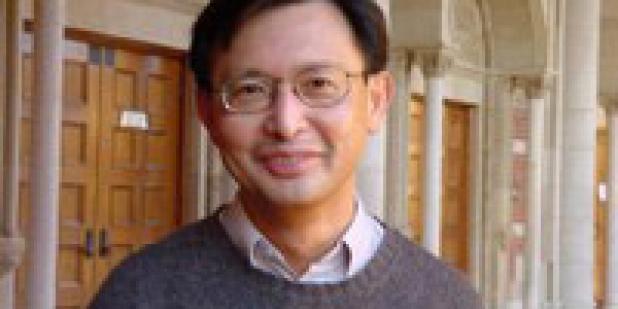Join us for a free one-day workshop for educators at the Japanese American National Museum, hosted by the USC U.S.-China Institute and the National Consortium for Teaching about Asia. This workshop will include a guided tour of the beloved exhibition Common Ground: The Heart of Community, slated to close permanently in January 2025. Following the tour, learn strategies for engaging students in the primary source artifacts, images, and documents found in JANM’s vast collection and discover classroom-ready resources to support teaching and learning about the Japanese American experience.
Revenge of the Forbidden City: Effectiveness of the Anti-Falungong Campaign in China, 1999-2005
James Tong speaks on the Chinese government's anti-Falungong campaign.

Falungong was outlawed in China ten years ago in July, 1999. The official ban was accompanied by a nation-wide campaign to arrest its national and local leaders, dissolving its
| Chinese state television announced the ban of Falungong on July 22, 1999. |
assemblies, and attempts to convert its practitioners. A relentless propaganda campaign was waged in radio and television, while a book series of 120 anti-Falungong titles was published. Analyzing arrest records, conversion rates of its leaders and practitioners, reception rates of anti-Falungong television programs, circulation numbers and best-book awards received by the Anti-Falungong series, the presentation attempts to evaluate the effectiveness of the Anti-Falungong Campaign.
******************************
James Tong works in Comparative Politics, specializing in Chinese Politics and political violence at UCLA. His publications on China include studies of peasant revolts from the Fourteenth to Seventeenth Century, the 1989 Democracy Movement, and Intergovernmental fiscal relations. His current research interests are civil society, gender and political participation, agency problems and control in China, and the Asian financial crisis. His Stanford University book on Disorder Under Heaven was nominated for the Association of Asian Studies’ Joseph Levenson Best Book Award in Pre-Twentieth Chinese Studies. It contains research that won the American Political Science Association's Gabriel Almond Award for Best Dissertation in Comparative Politics. Professor Tong has engaged in collaborative research projects with investigators from the Chinese Academy of Social Sciences, Tianjin Academy of Social Sciences, Beijing University, People's University, Academia Sinica (Taipei), National Taiwan University, National Chengchi University, Chinese University of Hong Kong.
Featured Articles
Please join us for the Grad Mixer! Hosted by USC Annenberg Office of International Affairs, Enjoy food, drink and conversation with fellow students across USC Annenberg. Graduate students from any field are welcome to join, so it is a great opportunity to meet fellow students with IR/foreign policy-related research topics and interests.
RSVP link: https://forms.gle/1zer188RE9dCS6Ho6
Events
Hosted by USC Annenberg Office of International Affairs, enjoy food, drink and conversation with fellow international students.
Join us for an in-person conversation on Thursday, November 7th at 4pm with author David M. Lampton as he discusses his new book, Living U.S.-China Relations: From Cold War to Cold War. The book examines the history of U.S.-China relations across eight U.S. presidential administrations.




